Choosing the right group health plan means finding a provider who can tailor coverage to your business. At Atlas Insurance Agency, A Marsh & McLennan Agency LLC, we help you maximize value with customized policies for you and your employees. We’re licensed in Hawai’i and multiple U.S. states to offer Life & Health Insurance.
Hawai’i is very unique as both small and large employers in Hawai’i are mandated either under PrePaid Health Care Act (PPHCA), the Affordable Care Act (ACA), or both, to cover their employees. However, the level of coverage and the type of plan you may need to purchase may vary depending on the size of your company.
Small employer groups may have limited plan or coverage options, but you can choose your insurance carrier. While benefits are similar across approved Hawai’i Employer Group Health Insurance providers, each offers unique services, programs, and plan management approaches.
Large employer groups have a little more flexibility in what they provide their employees.
PrePaid Health Care Act (PPHCA)
Originally enacted in 1974, the Hawai’i PrePaid Health Care Act was the first in the nation to set minimum standards of health care benefits for workers.
Employers must provide health care coverage to employees who work at least twenty (20) hours per week and earn 86.67 times the current Hawai’i minimum wage per month (as of January 1, 2018, $10.10 x 86.67 = $876). Coverage commences after four (4) consecutive weeks of employment or the earliest time thereafter at which coverage can be provided by the health care plan contractor, which is usually the first of the month.
Employers may choose a plan designated a 7(a) or 7(b) plan. Plans that are designated 7(a) are those that are equal to or better than the benefits offered by the plan with the largest number of subscribers (also known as the prevalent plan) in the State of Hawai’i. Plans designated as 7(b) provide for sound basic hospital, surgical, medical, and other health care benefits; however, the plan’s benefits, such as, the deductible, out of pocket limit, lifetime maximum benefit, benefit level and copayments, may be more limited than the benefits provided by plans qualifying as 7(a). Plans qualifying as 7(b) require the employer to pay at least one-half of the cost for spouse and dependent coverage.
Employers may elect to pay the entire monthly premium or share the cost with their employees. Employers must pay at least 50% of the premium cost, but the employees’ share cannot exceed the lesser of 50% of the premium cost or 1.5% of the employees’ monthly gross earnings. Cost sharing for dependents is determined by plan type.
Affordable Care Act
The Affordable Care Act is a comprehensive health care reform law enacted in March 2010, also known as ACA, PPACA (Patient Protection and Affordable Care Act) or Obamacare.
One of the goals of the Affordable Care Act was to make quality, affordable health insurance available to every American. The law also provides consumers with subsidies called premium tax credits if they qualify.
Other changes included, but are not limited to: Elimination of lifetime or annual benefit limits, required coverage for preventive health services/Essential Health Benefits, extension of dependent coverage, measures to attempt to ensure fair health insurance premiums.

Through the Affordable Care Act, Applicable Large Employers (ALE) with 51 or more employees are required to provide health insurance coverage to their employees. While small employers with 50 or fewer are not, under the State of Hawai’i’s Prepaid Health Care Act, all Employers must provide health insurance coverage to all employees who work more than 20 hours per week (see information on PPHCA). Through the ACA, small businesses with fewer than 25 employees, if qualified, may benefit from the health care tax credit, which can only be obtained through an approved marketplace plan.
If an employer has fewer than 51 full-time employees during that calendar year, they are not an Applicable Large Employer and will be considered a small employer group. An Applicable Large Employer (ALE) are those who have 51 or more Full-Time Employees (FTE’s)
Calculate how many FTE’s your company has.
If you are an employer with 50 or fewer full-time employees, you may have a “Grandmothered” or “Transitional” plan with your current carrier if you have been with your carrier prior to 2013. However, if you changed carriers or benefits since then, you may be age rated, which means your employees and their dependents are rated by the insurance carriers based on their age. More information on the Affordable Care Act.
Essential Health Benefits
Under the Affordable Care Act there are Essential Health Benefits that all health insurance carriers must cover.
- Ambulatory Services
- Emergency Services
- Hospitalization
- Pregnancy, Maternity and Newborn Care
- Prescription Drugs
- Rehabilitative and Habilitative Services and Devices
- Laboratory Services
- Preventive and Wellness Care
- Chronic Disease Management
- Pediatric Services including Oral and Vision Care, not mandatory for adults
Small Hawai’i Employer Groups are required to provide all Essential Health Benefits to their employees who qualify for health insurance coverage. Most PPHCA approved employer plans in Hawai’i include the Essential Health Benefits.
Prescription

Prescription drug coverage is a required Essential Health Benefit for small employers. Some carriers include it in premiums, while others list it separately. Most offer multiple plan options with varying copays, coinsurance, deductibles, and out-of-pocket limits.
Applicable Large Employers are not required to provide prescription drug plan benefits, but health insurance carriers will provide prescription drug coverage as an option on your proposal.
Vision
Vision insurance provides a standard wellness benefit for healthy eye exams, which include routine eye care and most plans will provide a fixed dollar amount or co-payment towards the purchase of prescription eyewear or contact lenses. This should not be confused with your health insurance plan benefits, which should provide coverage for eye injury or disease.
Pediatric vision is an Essential Health Benefit for small employer groups and therefore a mandatory benefit. Some health insurance carriers include pediatric vision as a part of their embedded medical coverage, while some carriers will have it listed so you may see the cost of the vision plan.
Dental
Dental coverage can be included as a part of your health insurance proposal. Pediatric dental is an Essential Health Benefit, so it is mandatory for small employer groups. If dental coverage is not included with your health insurance plan, carriers may have you sign an attestation that pediatric dental coverage will be offered through another carrier.
There are several different options to consider when looking at dental plan proposals.
Industries Served
Here at Atlas, we understand that no two businesses are the same. Your insurance policy needs to be customized, ensuring you receive coverage while also maintaining compliance. For a breakdown of policies based on your respective industry, click the button below to learn more.
Get Started With Atlas Insurance Agency, A Marsh & McLennan Agency LLC
With a health insurance package from Atlas Insurance, A Marsh & McLennan Agency LLC, you can safeguard your organization and employees against a variety of medical expenses and health-related risks. Contact us by phone or online to learn more or to get started with comprehensive health insurance solutions today.



